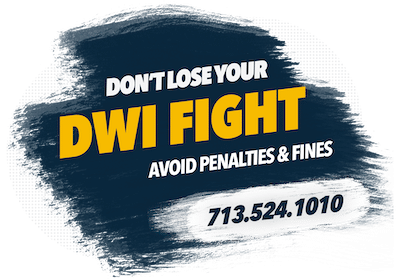HOW YOUR DWI LAWYER IS YOUR BOATING WHILE INTOXICATED LAWYER

During The Summer Months, We Become Boating While Intoxicated Lawyers As Police Crack Down On Boating While Intoxicated Offenses.
In Its Peak Time, Our Firm Will Defend Just As Many BWI Cases As We Will Driving While Intoxicated Cases Because The Consequences For A Conviction Or An Arrest For BWI Are Almost Identical To Those Of DWI.
Bring A Boating While Intoxicated Lawyer Onboard
Certain Activities And Holidays Seem To Always Intermingle With Alcohol.
When We Close Our Eyes And Picture A Boat On The Water, Our Image Will Most Likely Contain Water Skis, The Wind Coming Off The Lake And, Yes, A Cooler Filled With Beer.
Most Of The Time We Exit The Water In The Same State As When We Launched Our Boat, But Other Times, We’re Stopped By The Police And We Need A Boating While Intoxicated Lawyer.
Boating While Intoxicated Versus Just Floating While Intoxicated
Chapter 49 Of The Penal Code Defines A Watercraft As,
“A Vessel, One Or More Water Skis, An Aquaplane, Or Another Device Used For Transporting Or Carrying A Person On Water, Other Than A Device Propelled Only By The Current Of The Water.”
In Essence, This Means That If You Are Floating The Guadalupe In A Tube Or Raft, Then You May Only Be At Risk Of A Lesser Alcohol-Related Charge, But Just About Anything Else On The Water Qualifies A Watercraft For BWI Purposes.
One Of The Differences Between “Floating While Intoxicated” (Not A Real Charge) And Boating While Intoxicated, Is That A Police Officer Does Not Need To Have Reasonable Suspicion That You Are Violating Any Law In Order To Stop And Board Your Vessel.
The Ruse Of Boating “Safety Checks”
It Is Becoming Routine For Residents And Guests Alike To Have To Deal With Officers Doing A “Safety Inspection.”
Generally Speaking, This Safety Inspection Is A Ruse To Check Your Boat Equipment And Then Start Asking Questions About The Number Of Drinks You Have Consumed.
The Officers Will Likely Ask You To Perform A Few Non-Standardized Tests And Then Request That You Move To Your Boat And Head For The Shore.
Once On Land, They Will Let You Sit For 15 Minutes To Get Your Equilibrium, Then Begin Doing Roadside Tests—The Same Standard Field Sobriety Tests Used In Driving While Intoxicated Arrests.
You Could Have Been Fishing Off The Coast For 8 Hours Or Simply Taking A Joy Ride On The Lake And All The Time The Officers Will Allow You Is 15 Minutes Before They Commence Testing.
Boating While Intoxicated And Implied Consent
Keep In Mind That The Implied Consent Law Applies To Boating While Intoxicated The Same Way It Does To DWI.
This Means That A Police Officer Will Ask You To Submit To A Breath Or Blood Test And The Choice You Make Will Have Major Consequences On Your Driver’s License.
If You Refuse To Provide A Breath Or Blood Specimen, Your License Or Privilege To Operate A Motor Vehicle Will Be Suspended For 180 Days.
If Your BAC Results Are Over .08, Then Your License Will Be Suspended For 90 Days.
Boating While Intoxicated And Your Commercial Driver License
If You Have A Commercial Driver License And You Refuse The Breath Or Blood Test Or You Are Found To Have A Result About A .08, Your CDL Will Be Suspended For One Year.
That Means If You Have A Job That Requires A CDL, You Could Lose That Job For Having Too Many Drinks While Fishing On The Lake.
However, You Have 15 Days From Your Arrest To Request A Hearing—Also Known As An Administrative License Revocation (ALR) Hearing—In Order To Save Your Driver License Or CDL.
An Experienced Boating While Intoxicated Attorney Will Use This Hearing To Potentially Save Your Driver License And Use The Evidence Gathered In This Hearing In Your Underlying BWI Case.
Boating While Intoxicated Penalties
A First Time BWI Case Is A Class B Misdemeanor Which Hold The Following Punishment:
- From 3 Days To 180 Days In Jail
- A $2,000 Fine
- Unlike A DWI Charge, If Your Blood Alcohol Level Is Above .15, The Boating While Intoxicated Charge Remains A Class B Misdemeanor.
- However, A BWI Can Be Used To Enhance The Punishment Range Of Any Subsequent BWI Or DWI.
- Additionally, If You Have Prior DWI And BWI Convictions, The Punishment Can Be Enhanced To A Class A Misdemeanor For One Prior And A Third Degree Felony For Two Prior Convictions.
Call A Boating While Intoxicated Attorney
A Boating While Intoxicated Attorney Will Know How To Navigate The Troubled Waters To Help You Through Your BWI Charges.
We Know How Unfair Police Tests Are And How They Are Designed To Make You Fail Them.
Call Us 24/7 To Discuss Your Case And Schedule A Free Consultation.
TELL US ABOUT YOUR CASE
Use the form to request your free consultation to discuss your case with one of our attorneys. The use of this form does not establish an attorney-client relationship.
The information on this website is for general information purposes only. Nothing on this site should be taken as legal advice for any individual case or situation. This information is not intended to create, and receipt or viewing does not constitute, an attorney-client relationship.



